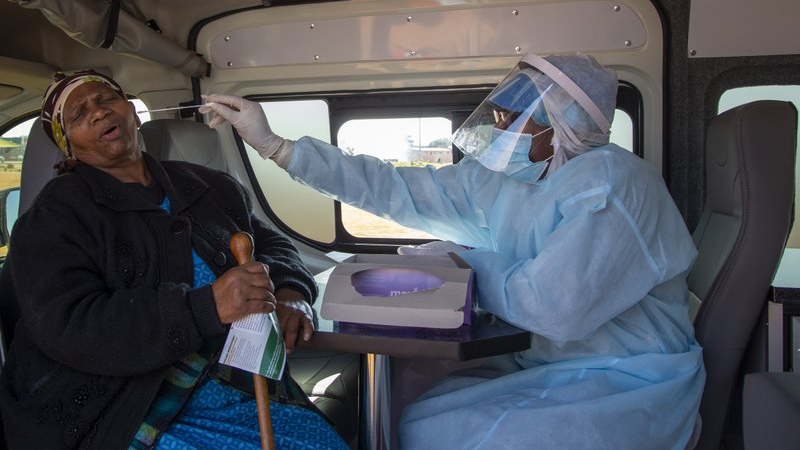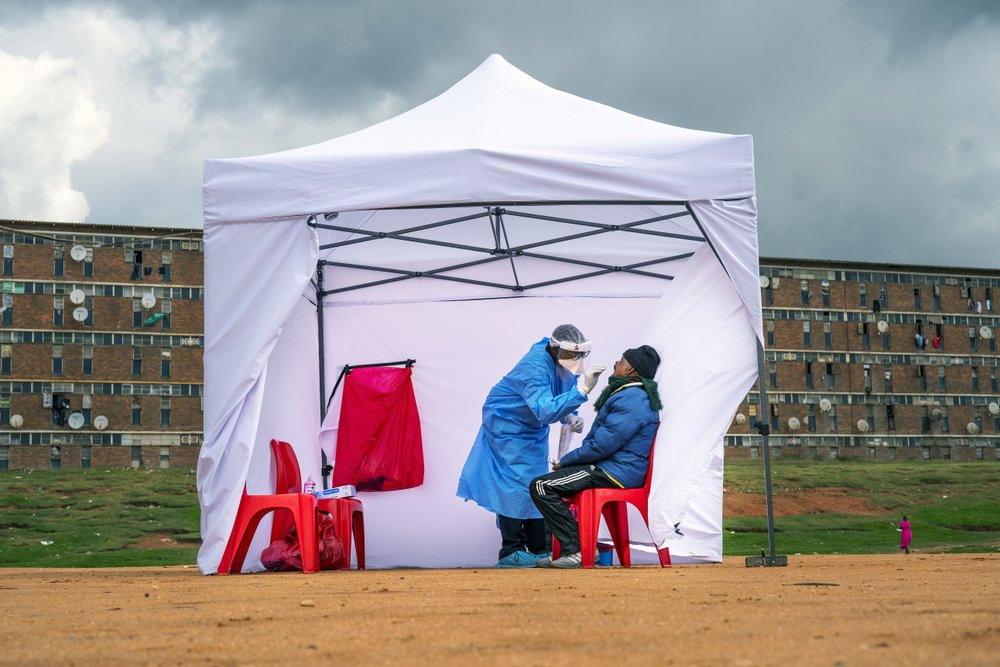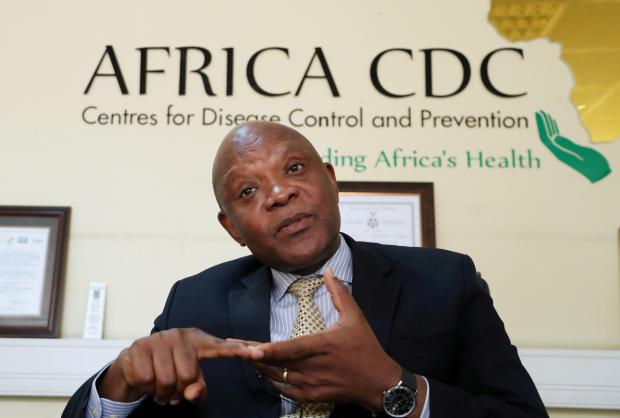
An elderly woman reacts as a heath worker collects a sample for coronavirus testing in Katlehong, south of Johannesburg, South Africa, May 22, 2020. /AP
South Africa's worst hotspot for the coronavirus, Western Cape province, is no longer testing most people under age 55 as it tries to clear a backlog of 27,000 tests amid a shortage of kits.
The Western Cape, centered on the city of Cape Town, will test people under 55 only if they have serious health conditions, have been admitted to a hospital or are a front-line health worker, Western Cape Governor Allan Winde said.
"If you were younger than 55 and you had symptoms, assumed [sic] you have COVID-19. You didn't need to worry, because you'll be fine after 14 days. There's no purpose in getting a test," Western Cape head of health Keith Cloete told radio station Cape Talk this week. People who are younger than 55 and generally healthy are advised to isolate themselves if they show symptoms.
They planned to "preserve tests" for where it "makes the most difference," Cloete said.
The province continues to see a worrying increase in infections that has made it the epicenter of the outbreak in Africa. The Western Cape has a population of around 6 million and more than 24,000 of South Africa's 35,725 confirmed cases.

A resident from the Alexandra township gets tested for the new coronavirus, in Johannesburg, South Africa. May 22, 2020. /AP
The province alone has more confirmed cases than any other country on the 54-nation continent except Egypt. South Africa has the most cases in Africa, where overall cases, after a slow start, have surpassed 162,000, according to the Africa CDC.
The area's testing problems are part of a countrywide issue. South Africa has a national backlog of nearly 100,000 tests, although it has also conducted the most tests in Africa.
The Western Cape, one of Africa's most popular tourist destinations before the pandemic, is bracing for a peak in COVID-19 infections and deaths in the next few months. It already has 597 of South Africa's 792 deaths.
Cape Town announced a "fatalities management plan" last month and said the number of people dying in the city from COVID-19 could reach around 4,000 per month.
John Nkengasong on Thursday announced that the continent is still far behind the goal of conducting at least 10,000 tests per million people. He said just about 1,700 tests are being carried out per million compared to about 37,000 per million in Italy and 30,000 per million in the UK.

John Nkengasong, director of Africa Centers for Disease Control (CDC). /Reuters
"Lack of access to diagnostics is Africa's Achilles heel," he wrote on April 28 in an opinion piece in Nature. African countries are struggling to offer widespread testing as global protectionism and "a failure of international solidarity" has pushed them out of the diagnostics market.
During the pandemic, even the world's largest economies have had their own struggles with obtaining the kits and personal protective equipment, many of them have to focus on their own domestic crises and limiting their exports of medical materials. African countries had funds to pay for reagents, but couldn't buy them, said Nkengasong.
The African CDC and the African Union launched the Partnership to Accelerate COVID-19 Testing (PACT) on April 21. PACT aims to strengthen capacity to test for COVID-19 across Africa and ensure that at least 10 million Africans will get tested in the next six months. But even that is less than one percent of the continent's 1.2 billion population.
Africa's numbers are rising steadily as testing improves, with a 31 percent increase in new cases since last week. The continent's cases represent less than three percent of the global total.
Nkengasong said 3.4 million tests have been conducted so far across Africa, which has a population of 1.3 billion people, and testing capacity is "increasing very, very rapidly."
Officials expect that number to continue rising but a lack of testing is hindering countries' ability to get ahead of the novel coronavirus.
(With input from agencies)
 简体中文
简体中文





